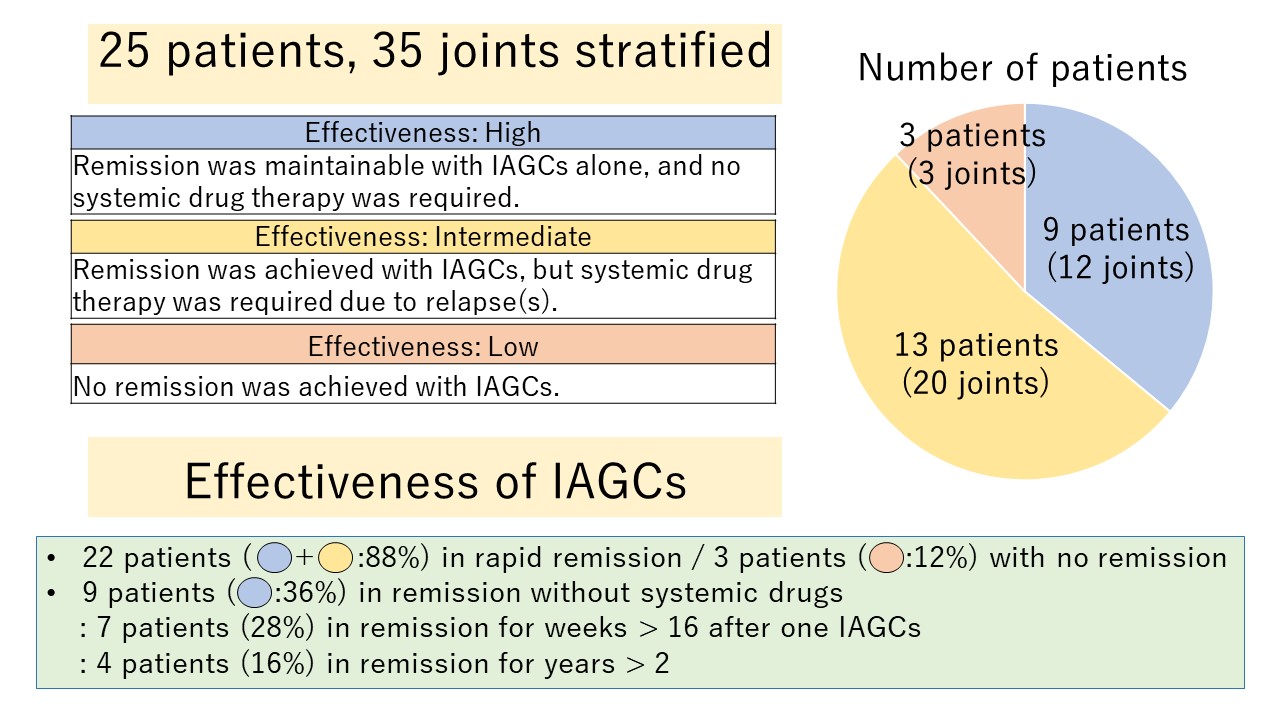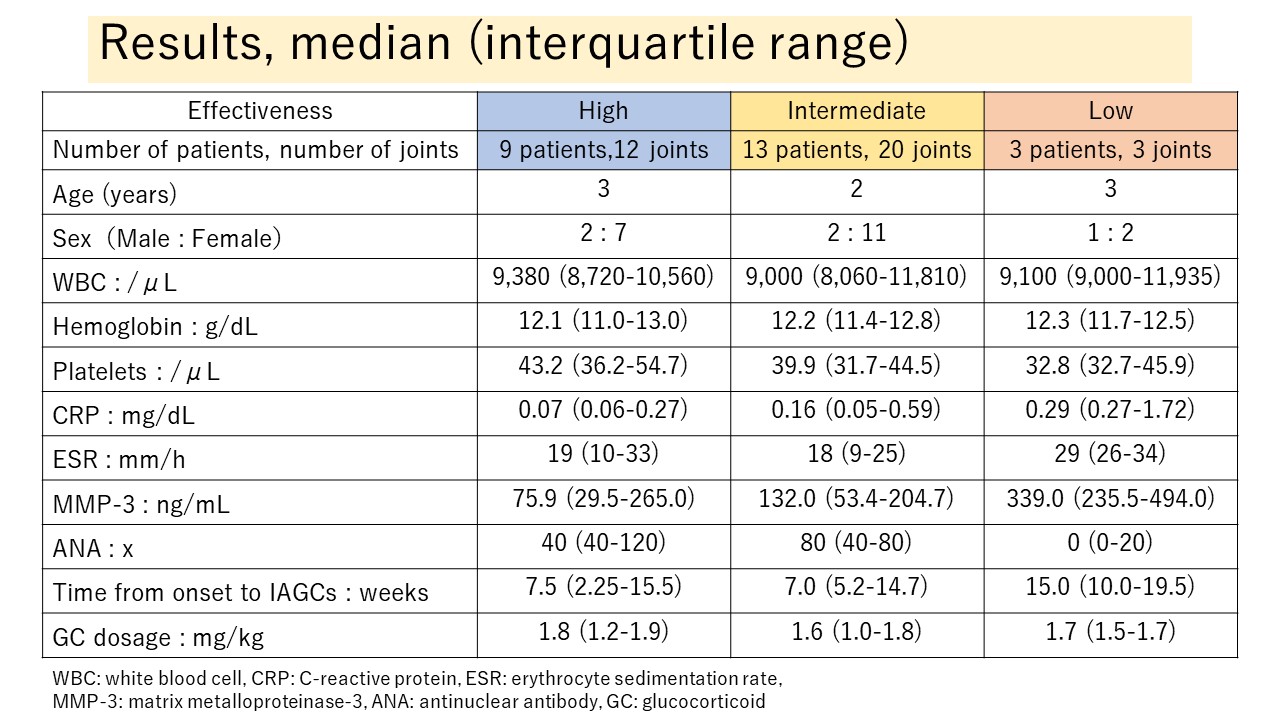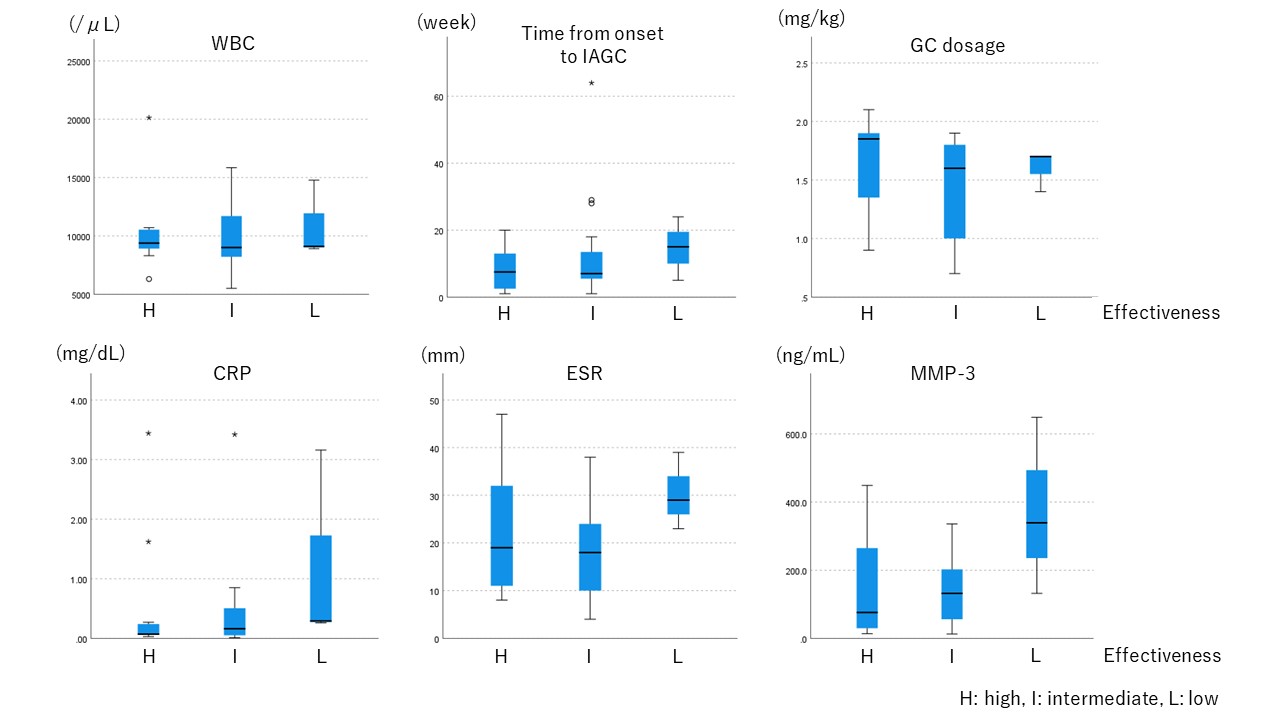Session Information
Session Type: Poster Session A
Session Time: 10:30AM-12:30PM
Background/Purpose: Intra-articular glucocorticoids (IAGCs), a treatment for oligoarticular JIA, is a local therapy that obviates the need for systemic medication and its attendant side effects and has an immediate effect that is highly satisfactory to patients and their family. In fact, the 2021 American College of Rheumatology guidelines “strongly recommend” IAGC is “as part of initial therapy.” On the other hand, currently in Japan, systemic therapy is the mainstay of treatment, and the utility of IAGCs is unclear.
The present study aimed to evaluate the efficacy of IAGCs for new-onset oligoarticular JIA.
Methods: IAGCs was performed at Tokyo Metropolitan Children’s Medical Center and Hyogo Prefectural Kobe Children’s Hospital between April 2015 and March 2024. Cases of new-onset oligoarticular JIA which had been observed for more than 16 weeks were retrospectively analyzed using medical records. Only arthritis of the knee joint, the most common site of oligoarticular JIA, was included.
Results: Twenty-five patients (five males, 20 females), aged 1-5 years (median: 2 years) comprising 35 joints received IAGCs. Twenty-two patients (88%) experienced rapid remission of arthritis, three (12%) did not; nine (36%) remained in remission without systemic medication; seven (28%) remained in remission after one IAGCs; and of the latter four (16%) remained in remission for more than two years. On the other hand, 16 patients (64%) required systemic medication, and all three patients who had no symptom remission with IAGCs required biological disease-modifying anti-rheumatic drugs. The efficacy of IAGCs was stratified into three groups: (1) highly effective, in which remission was able to be maintained with IAGCs alone without recourse to systemic drug therapy; (2) moderately effective, in which remission was achieved with IAGCs but systemic drug therapy was still required due to relapse(s); and (3) poorly effective, in which no remission was achieved after IAGCs. The median serum matrix metalloproteinase-3 quartiles in units ng/mL were (1) 7.9 (29-265), (2) 132 (53-204), and (3) 339 (235-494), and tended to be higher in the group with poor IAGCs efficacy. Of the 21 sedations performed during IAGCs, four (15%) showed transient desaturation, which improved promptly with oxygen administration. No long-term complications due to IAGCs were observed.
Conclusion: In oligoarticular JIA for knee arthritis, IAGCs enabled remission to be maintained without systemic drug therapy in 36% of the patients.
To cite this abstract in AMA style:
Akamine K, Mizuta M, Yatabe R, Aida Y, Mikami N, Harada R, Hamada R, Nakagishi Y, Hataya H. Efficacy of Intra-articular Glucocorticoids as a Treatment for Oligoarticular Juvenile Idiopathic Arthritis: A Bicentric Retrospective Study in Japan [abstract]. Arthritis Rheumatol. 2024; 76 (suppl 9). https://acrabstracts.org/abstract/efficacy-of-intra-articular-glucocorticoids-as-a-treatment-for-oligoarticular-juvenile-idiopathic-arthritis-a-bicentric-retrospective-study-in-japan/. Accessed .« Back to ACR Convergence 2024
ACR Meeting Abstracts - https://acrabstracts.org/abstract/efficacy-of-intra-articular-glucocorticoids-as-a-treatment-for-oligoarticular-juvenile-idiopathic-arthritis-a-bicentric-retrospective-study-in-japan/



